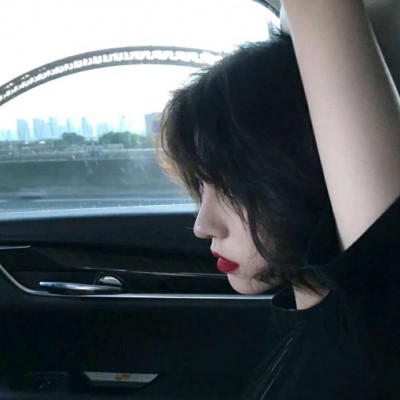
关于文化的作文? 关于沙特文化的作文?
原|2024-07-15 07:07:01|浏览:33
一、关于文化的作文?
“文化作文”一般指充满文化内涵的文章,是把作文的根扎进文化的土壤,让作文在几千年文化长河中汲取营养,让作文的鲜花散发出文化的芬芳。
这是厚重的文化向作文强势渗透,并在实践中使作文逐渐文化化后结出的硕果,莫怀戚教授说这是“中学生写作的文化化”,我们就把这种富有文化色彩与浑厚的文化底蕴的作文称为“文化作文”,这并不是说其它作文就没有文化,而是因为这类作文有强烈的传统文化气息。
“文化作文”在构思上把话题放到一个广阔深厚的文化背景上去审视、对比、碰撞,或以文化的眼光打量事物;或以文化的心态叙述或议论自然社会之哲理;或以文化的理性批判时代的假丑恶;或以文化的智慧表现真善美;或以历史文化名人的言论或事迹,显示作者的文化积淀等等。
浑厚的文化底蕴、深刻的文化认知、充沛的文化精神、较高的文化品位,是“文化作文”写作的追求。
“文化作文”的实质是用文化的眼光审视话题,用文化的意蕴丰美话题,用文化的材料表现话题,用文化的笔法写作话题,用文化的思辨挖掘话题,用文化的品位提升话题。
“文化作文”满分技法很多:诗词引用法、情景再现法、文化审视法、故事新编法、典型人物法、文言仿篇法等都是常见的方法。 追问: 是啊,你给我很多。但请你给我现成的! 回答: 加我Q``发给你``太多字``850295184
二、关于沙特文化的作文?
在沙特阿拉伯馆入口,从下往上看展馆就像一个月亮船,于是我就排着长长的队伍进去了。
我首先来到了城市与人民大厅,这里的主题与2010世博会"城市,让生活更美好"的主题相呼应,二楼的展览将介绍沙特的城市和当地人民。接着来到了珍宝影院,这是本届世博会的一大亮点:置身于1600平方米的巨幕影院中,尽赏沙特的辉煌之美,亲眼目睹它的自然和文化之瑰宝。然后来到了艺术走廊,继续踏上通往屋顶的通道,参观者可以欣赏到沙特独特的艺术和珍贵的手工艺品。走着走着我来到了阿拉伯屋顶绿洲,月亮船的屋顶上是搭着贝多因帐篷的沙特绿洲,枣椰树在迎风飞扬。最后我顺着道路下来了,在下来的路上看见了美丽的喷泉。
我觉得:月亮船之旅定将成为一个美好的回忆。
三、关于筷子文化的英语作文?
Similar to people of other nationalities,ancient Chinese people grasped or tore food with their bare hands at the beginning.
Chopsticks,forks, knives and spoons were used much later, of which chopsticks,with a history of thousands of years, are a wonder of Chinese dining utensils.
Chopsticks are the dining utensils most frequently used in Chinese people’s daily life.
In ancient China, they were called zhu.
When the Chinese began to use chopsticks as an eating instrument is anybody’s guess.
They were first mentioned in writing in Liji ( The Book of Rites ), a work compiled some 2 000 years ago
Chopsticks may be made of any of several materials: bamboo, wood, gold, silver, ivory, pewter, and plastics.
In cross-section, they may be either round or square.
Some of them are engraved with coloured pictures or calligraphy for decoration.
Ordinary chopsticks used in Chinese homes are of wood or bamboo, those for banquets are often ivory, whereas gold ones belonged only to the royalty and aristocracy.
四、关于筷子的文化英语作文?
Some people did some research on the origin of China’s chopsticks compared to the knife and fork in the West. One theory is that China was an agricultural society and relied on vegetables for food. Chopsticks were very convenient tools for eating. The Westerners, on the other hand, were nomads and lived on meat. The knife and fork were more practical. Others believe that China did not have much industry, and therefore people used chopsticks. The West was an industrial society, so their eating utensils were made of me
五、关于邯郸文化的英语作文?
Handan was the capital of Zhao in the Warring States Period, Cao Wei was the capital of Linzhang in the late Han Dynasty, and the first capital of Zhili Province in the Qing Dynasty.
六、关于李白的文化作文。?
轻轻地,微风撩起你那带酒气的发梢,盛满你那只志澎湃的酒杯。于是,你剧起酒杯邀来明月,在花间轻吟一首诗,你醉了,风醉了,月也醉了。
你的酒杯空了,是否又要让风儿为你斟上一杯。狂傲不羁的你对生活失去了信心吗?
我佩服你,以奔放的激情,表达你内心深处济世安民的政治理想,抒发你的壮志抱负不能实现的悲愤不平。
我听到了你心里那悲愤的呐喊:“行路难,行路难,多歧路,今安在!”宣泄出你“抽刀断水水更流,举杯消愁愁更愁,人生在世不称意,明朝散发弄扁舟”的痛苦。
夜,已渐渐变深沉,深沉的夜掩盖住你内心的空虚,这时的你,不再是白天的那个激烈地揭露,抨击上层统治阶级穷兵黩武、骄奢淫逸、贱视贤才的种种罪行的你。你现在只是一个人,一个孤独的人。内心的感觉恐怕只有酒知道吧!
你向往自由,追求理想,一生漫游了无数名山大川,足迹几乎遍及全中国。从蜀道到长安,从长安到庐山,一条条平平仄仄的路,如同你那坎坎坷坷的人生。一路匆匆走来,高堂明镜里遗落了你几丝斑白如雪的发。
你视富贵利禄为尘土,视功名如敝屣。只要有酒,那今宵就醉吧!
诗,是你生命的寄托,灵魂的归宿,酒是你华丽的屏帐,吟吧!醉吧!笑吧!在长安这片悲悲喜喜的月色里临风独舞!
七、关于正安文化的结尾作文?
正安文化也是华夏民族流传下来的一种文化,希望我们继承与发扬
八、关于东坡文化的英语作文?
in chinese history, su shi, together with his brother su zhe and father su xun, were all famous and were called three sus. but su shi’s contribution was the greatest. he not only created wonderful works, but also did many good things for common people when he was an officer. today, there is still a su bank in hangzhou province.because of su’s talent, su was envied and was relegated to huangzhou, a poor place. even when su was there, he didn’t lose his spirit for the life. what’s more, his poems created at that time was even better. su’s time has past, but his spirit lives forever.
九、关于建筑文化的作文提纲?
先简单介绍建筑文化,中间写以往的建筑现在的建筑,进行比较和发展的阐述
十、关于酒文化的英语作文?
Wine culture refers to the general term of material culture and spiritual culture produced in the process of wine production, sales and consumption.
Wine culture includes wine culture phenomena such as the making method, taste method, function and history of wine.
There are not only the material characteristics of wine itself, but also the spiritual connotation formed by wine tasting, which is a specific cultural form formed in the process of making wine and drinking.
猜你喜欢
- 茶的分类及代表品种
- 六大茶类的代表名茶分别有
- 茶的类型和代表
- 六大茶叶的分类及产地
- 庙的分类及代表
- 藻的分类及其代表
- 茶的分类及代表茶品特点
- 茶的分类及代表茶
- 简述茶类的分类及其代表性名茶
- 六大茶类的分类及代表茶
- 动物分类及代表
- 糖的分类及代表
- 茶的分类及代表茶叶
- 茶的分类及代表图
- 茶的分类及代表作
- 茶器按质地的分类及代表茶器
- 茶的分类及代表名茶教学设计
- 简述茶的分类及代表性名茶
- 请写出乌龙茶的分类及代表茶
- 法国雅文邑白兰地系列
- 雅文邑白兰地介绍
- 1952年法国雅文邑白兰地
- 法国雅玛邑白兰地
- 纽波利顿獒
- 法国犬品种
- 南非獒犬的优缺点
- 波尔多獒犬寿命
- 波兰狩猎犬
- 波尔多犬和罗威纳犬对比
- 波尔多犬和杜高对比
- 世界十大凶犬
- 护卫犬排行榜前十名
- 大红袍怎么泡效果好
- 大红袍怎么泡不开
- 大红袍怎么泡茶
- 大红袍怎么泡出来没颜色
- 大红袍怎么泡不苦
- 大红袍怎么泡多久
- 大红袍怎么泡才正确的特点
- 大红袍怎么泡没有柴味儿
- 大红袍怎么泡放多少合适
- 花香大红袍怎么泡
- 大红袍怎么泡茶好
- 大红袍是怎么泡的
- 大红袍怎么泡水好喝
- 大红袍用玻璃杯怎么泡
- 大红袍怎么泡味道浓一些
- 十大排名果花茶
- 十大花茶组合排名
- 十大花茶品种大全
- 十大花茶功效
- 十大花茶销量排行榜
- 十大花茶有哪些
- 十大花茶品种
- 十大花茶推荐
- 十大花卉排行榜
- 十大花卉
- 十大花茶调理内分泌
- 九五至尊秦昊明月关山
- 红茶冲泡工艺
为你推荐






































































